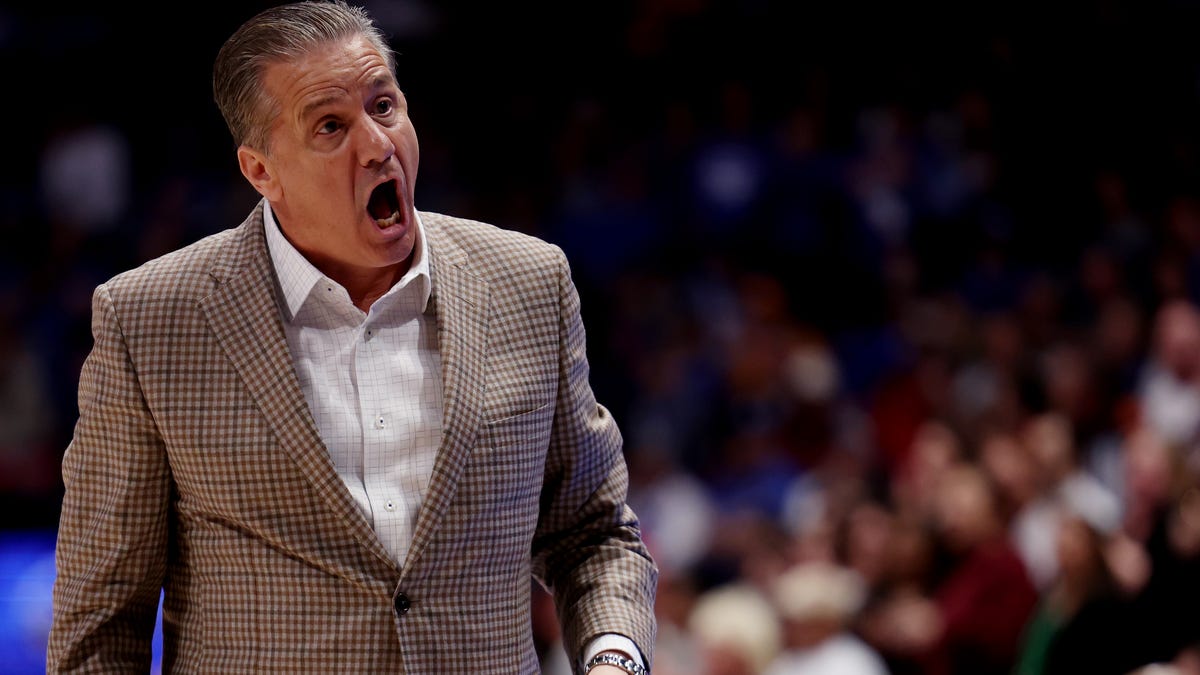Louisiana
Lawmakers kill minimum pay raise in Louisiana, where one in five people live in poverty

Louisiana’s poorest workers won’t get a minimum wage increase and employers won’t be forced to address the pay gap for women after lawmakers killed bills to address income disparities in the state with the highest poverty rate in the United States.
State senators on the Labor Committee voted to halt Democratic New Orleans Sen. Gary Carter’s bills to create a state minimum wage higher than the federal minimum of $7.25 an hour and an equal pay measure for women. Both 5-2 votes fell along party lines with all five Republicans against the measures and two Democrats in favor.
Meanwhile, the full House advanced measures to reduce unemployment benefits (House Bill 119) and repeal a child labor law requiring employers to give a meal break to teenage workers (House bill 156).
Carter, whose Senate Bill 173 would have created a state minimumum wage at $10 per hour and gradually be raised to $14 per hour, argued that people “should not be living in poverty while working full time.”
But those who opposed the bill like Patrick Robinson with the Louisiana Association for Business and Industry testified that Carter’s bills would create hardships on businesses, trigger job cuts, increase costs to consumers and in the case of the equal pay measure create a hostile work environment.
“It’s bad policy,” Robinson said. “It would make our state less competitive. It would force businesses to cut work forces.”
But others who advocated for the minimum wage bill like Melissa Flournoy of Elevate Louisiana noted 34 other states have already established minimum wages higher than federal law, including northern neighbor Arkansas. Neighoring Texas and Mississippi don’t have state minimum wages.
“Arkansas has an $11 minimum wage and we didn’t hear stories of economic devatation in Arkansas,” Flournoy said. “The Legislature continues to demonize the poor. These invisible men and women toil in back-breaking jobs.”
Carter also said employers who pay what he described as “poverty wages” encourage workers to remain dependent on taxpayer assistance like Medicaid and food stamps even while working full time, placing a burden on the state budget.
“This is an opportunity for people to provide for themselves and their families,” Carter said.
About one in five Louisianians live in poverty.
Louisiana women in particular face bleak circumstances on nearly every front from poverty to life expectancy to education, according to a study released earlier this year.
The WalletHub study ranked Louisiana 50th among states and the District of Columbia as best places for women, ahead of only Oklahoma.
Last spring a WalletHub study ranked Louisiana as the worst state in America for working mothers with data showing moms here are shortchanged on everything from pay to childcare.
The Louisiana House Labor Committee has already rejected a minimum wage bill in the lower chamber, ending the effort for another year.
More: Louisiana women face bleak circumstances, according to new study ranking the state 50th
Greg Hilburn covers state politics for the USA TODAY Network of Louisiana. Follow him on Twitter @GregHilburn1.
.

Louisiana
Special education, income quotas could be removed for charter school enrollment • Louisiana Illuminator

Louisiana charter schools might soon be able to remove certain enrollment requirements for students with disabilities and economically disadvantaged students. It’s a move that parents of those students feel limits their options in a school system based on choice.
House Bill 708, authored by Rep. Barbara Freiberg, R-Baton Rouge, moved out of the Senate Education Committee on Wednesday, despite initial pushback from some committee members and the public. It heads next to the Senate floor and, if approved, would have to go back to the House for concurrence on a committee amendment.
In 2015, former Sen. Dan Claitor authored a bill to add the language to state law that Freiberg is trying to remove. Claitor spoke to the committee in opposition to Freiberg’s bill.
Under Claitor’s bill, certain charter schools must have a percentage of students equal to 85% of the disabled or economically disadvantaged students in the local school district.
For example, if 55% of a local school district’s population is economically disadvantaged students, 46.75% of the charter school’s enrollment must be economically disadvantaged students.
Sen. Beth Mizell, R-Franklinton, questioned the reasoning behind Freiberg’s bill.
“I am a hundred percent charter, but I don’t understand the resistance,” Mizell said. “I don’t understand taking the rule out that gave us the only protection saying charters are absolutely fair across the board.”
Proponents of Freiberg’s bill said the quotas are unfair because charter schools are held to a higher standard than other public schools. Standard public schools are not required to enroll a certain number of students with disabilities or economic disadvantages.
“The quotas only give people who have an ax to grind an ability to go in to be able to cause harm,” said Kenneth Campbell, previously the executive director of charter schools for the Louisiana Department of Education.
Some charter schools have selective admissions and have resisted providing special education services, although they’re required at public schools under state and federal law.
GET THE MORNING HEADLINES DELIVERED TO YOUR INBOX
Proponents also argued it is not fair to require that parents provide their household income or children’s disability details on charter school applications when public schools do not require the same information for enrollment.
Opponents of the bill reminded the committee that since Claitor’s law was enacted in 2015, the number of charter schools in compliance with the enrollment quotas has increased but is still not adequate.
According to a Louisiana Legislative Auditor report in 2022, 10.3% of charter schools required to serve a specific number of economically disadvantaged students did not meet the requirements. The rate is an improvement from the 2016-17 school year, when 21.3% charters did not reach their quota.
The report also says multiple schools repeatedly failed to meet the economically disadvantaged requirement. It did not include information on how many schools were meeting the requirement for students with disabilities.
Opponents of Freiberg’s bill were also concerned that removing the quota would allow “bad actors.”
“If we remove that requirement for charter schools to even serve those populations, there are going to be schools that figure out ways to avoid serving those children,” said Tania Nyman, an education advocate from East Baton Rouge Parish. “And that is not going to be beneficial for the community at large.”
Although the proposal removes “goal lines” for charter schools, it still requires the Board of Elementary and Secondary Education to create rules and regulations to oversee charter schools in this capacity. The stipulation was added as an amendment in committee.
Ashley Townsend, deputy policy chief for the Louisiana Department of Education, explained to committee members that BESE would essentially create a complaint process for parents to turn to if they feel that a charter school is discriminating against children with disabilities or those who are economically disadvantaged.
Ben Lemoine, BESE’s executive director of governmental relations, indicated that board members support Freiberg’s legislation.
Louisiana
A boy gave his only dollar to someone he mistook as homeless. In exchange, the businessman rewarded him for his generosity.

Baton Rouge, Louisiana — Matt Busbice and his partners have built and sold several outdoor companies worth hundreds of millions of dollars. But Busbice, the 42-year-old owner of sporting goods store BuckFeather in Baton Rouge, Louisiana, says he has never felt richer than he did the day he received a single dollar.
“I haven’t had that much faith in humanity in a very long time,” Busbice said.
He says it all began about a month ago. It was early morning, and the fire alarm was going off inside his condo complex. So, Busbice shot out of bed and raced down the stairs only to discover there was no fire. But he was awake now, so even though he was wearing mismatched clothes and was disheveled, he decided to go out for a cup of coffee.
As he was about to enter the coffee shop, he remembered he hadn’t done his morning prayer. So as the security camera shows, Busbice stepped to the corner of the patio to pray.
“And I started to slowly open my eyes, and there’s a kid coming at me, about my height,” Busbice said.
The boy had his fist clenched, so Busbice prepared for a confrontation. But instead, the boy opened his fist to reveal a $1 bill.
“And I go, ‘What?’” Busbice said.
“‘If you’re homeless, here’s a dollar,’” 9-year-old Kelvin Ellis Jr. recalls telling Busbice. “…I always wanted to help a homeless person, and I finally had the opportunity.”
Ellis says he had just gotten the dollar for good grades. It was the only money he had to his name. Busbice was so touched, he invited Ellis in for a snack and then connected with Ellis’ father, who was next door, and promised to stay in touch.
As a reward for his kindness, Busbice gave Ellis a shopping spree — 40 seconds to pick out whatever he wanted in BuckFeather, including a new bike. Ellis says it was great, but definitely not what he wanted to get for his dollar.
“Joy, because I helped someone,” Ellis said. “Give something away, and you feel like you’ve got a lot of things from it.”
“If you give, you’re actually going to get more out of that,” Busbice said. “I couldn’t grasp that as a kid. And if we can spread that around, everything changes.”
Louisiana
Crash causes interstate block on Atchafalaya Basin Bridge

BUTTE LA ROSE, La. (WAFB) – Troopers with the Louisiana State Police are investigating a crash involving overturned 18 wheeler that has completely blocked the interstate on the Atchafalaya Basin Bridge.
The crash reportedly happened around 1 p.m. on Friday, May 3, on I-10 westbound, east of Butte La Rose.
According to officials, westbound traffic is being diverted onto LA 415 to US 190, and Iberville SO is diverting onto LA 77 to US 190.
I-10 West is closed at LA 415 due to an accident on the Atchafalaya Basin Bridge. Motorists are advised to use an Alternate Route.
— Baton Rouge Traffic (@BR_Traffic) May 3, 2024
Drivers are asked to avoid the area if possible and to expect delays.
No other details have been released.
This is a developing story. Check back for more details.
Click here to report a typo.
Copyright 2024 WAFB. All rights reserved.
-

 News1 week ago
News1 week agoLarry Webb’s deathbed confession solves 2000 cold case murder of Susan and Natasha Carter, 10, whose remains were found hours after he died
-

 News1 week ago
News1 week agoFirst cargo ship passes through new channel since Baltimore bridge collapse
-

 World1 week ago
World1 week agoHaiti Prime Minister Ariel Henry resigns, transitional council takes power
-

 World1 week ago
World1 week agoSpanish PM Pedro Sanchez suspends public duties to 'reflect'
-

 World1 week ago
World1 week agoUS secretly sent long-range ATACMS weapons to Ukraine
-

 News1 week ago
News1 week agoAmerican Airlines passenger alleges discrimination over use of first-class restroom
-

 Movie Reviews1 week ago
Movie Reviews1 week agoHumane (2024) – Movie Review
-

 Education1 week ago
Education1 week agoVideo: Johnson Condemns Pro-Palestinian Protests at Columbia University














